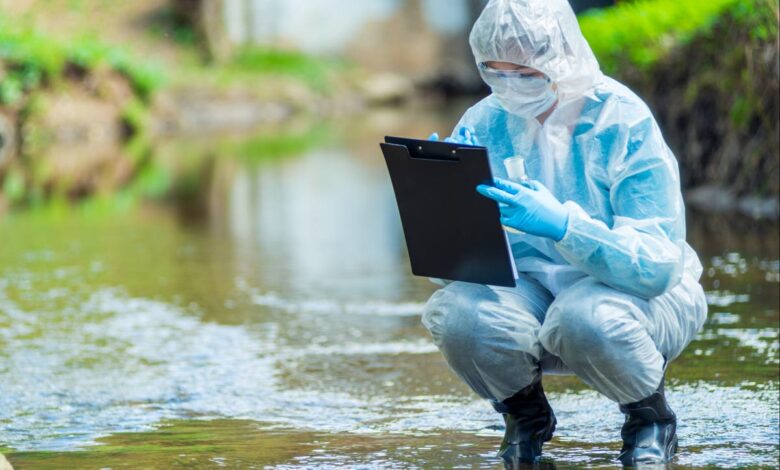UK rivers are a ‘superbug-polluted’ health threat, study finds

Britain’s waterways have never been in a sorrier state.
Many of them have been dredged, straightened, or concreted over. Those left are subject to unsustainable abstractions, or they are routinely used as overflow sewage pipes by profiteering companies with scant legal pressure to reform, and, across the country, rivers and streams are flooded with farm waste as it flashes off agricultural land.
Pesticides and fertilisers running off fields have devastating impacts on the flora and fauna in these vital, faltering ecosystems – poisoning fish and insects, causing huge algal blooms sucking oxygen out of the water, and, during times of drought, turning rivers into highly concentrated chemical cocktails in which nothing can live.
Researchers have now provided alarming new detail on the “far-reaching implications” farm waste has for our waterways, with rivers around the UK’s factory farms awash with antibiotic-resistant bacteria.
The report, which is the first of its kind in the UK, detected superbugs in rivers and waterways in areas with high levels of factory farming.
Two common bacteria that can cause infection and illness in humans and animals are E. coli and S. aureus.
Antibiotic-resistant strains of both were found in rivers adjacent to pig and chicken factory farms, as well as in slurry runoff from intensive dairy farms.
The research by World Animal Protection, Alliance to Save Our Antibiotics and the Bureau of Investigative Journalism has prompted “urgent calls on the UK government for a ban on the routine use of antibiotics on healthy farm animals”, the organisations said.
Samples were collected in areas around the UK with high levels of farming including Sussex, Norfolk and the Wye Valley, the latter of which has made headlines recently due to the enormous level of pollution from chicken farms causing high levels of nitrates and phosphorus and creating ecological dead zones.
The research team said that an estimated 80 per cent of all farmed animals in the UK live on factory farms.
“These farms’ squalid, cruel and cramped conditions force the need for wide-scale preventative antibiotic use – without which those animals would not survive.”
They warned that superbugs from factory farms which flow into rivers are then able to reach people in many ways, for example, in drinking water, during swimming and recreational activities or the consumption of fish from contaminated waters.
“Unless the government takes action, the UK faces a human health crisis whereby disease can no longer be treated due to antibiotic resistance,” they said.
Lindsay Duncan, farming campaigns manager at World Animal Protection, said: “Our report shows that our rivers are awash with superbugs.
“The World Health Organisation has estimated that antibiotic resistance will be the leading cause of death globally by 2050, with a total economic cost of £66 trillion – this is a human health crisis.
“We are calling on the UK government to act now, to raise welfare standards, prevent suffering and ban routine preventative use of antibiotics on farm animals.”
She added: “If the welfare of farm animals was improved, there would be no need for this dangerous and unnecessary use of antibiotics that is such a threat to human health.”
Cóilín Nuna, scientific adviser to the Soil Association and to the Alliance to Save Our Antibiotics, said that more than a million people a year are killed around the world due to growing levels of antibiotic resistance and highlighted how resistant bacteria in the environment are adding to the problem.
He said: “Most antibiotics taken by people or animals are excreted, along with antibiotic-resistant bacteria. When manure or slurry is spread on land, this increases the number of resistant bacteria in soils and water, and these can end up on crops. The best way to reduce farming’s impact is to make large cuts to antibiotic use, and this means keeping animals in healthier conditions so they rarely need medication.”





